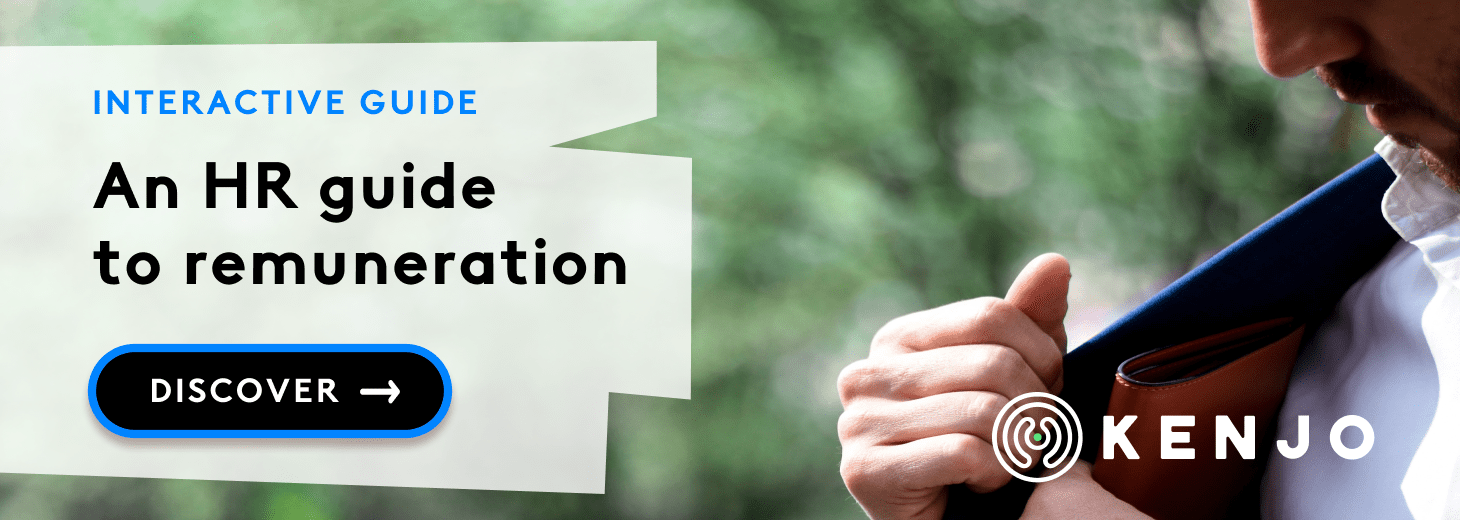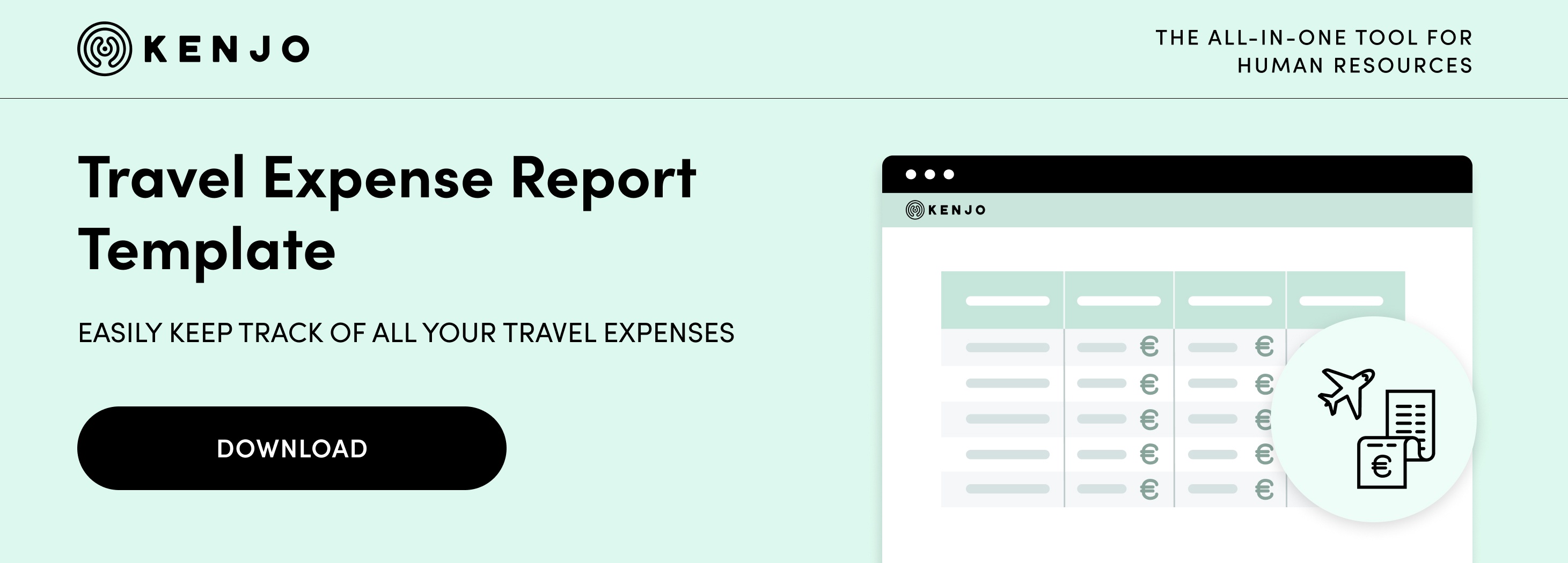Everything you need to know about flexible benefits in 2024

What are flexible benefits, and what advantages do they offer for employers and employees? We explain everything you need to know to help you implement this strategy in your company.
What are flexible benefits?
Flexible benefits, also known as payment in kind, are a salary supplement where employees are offered products or services at a reduced cost for the company. The organisation usually establishes a financial limit for this kind of benefits package.
According to XpertHR, the term flexible, in particular, refers to a scheme where employees can tailor their benefits package according to their individual needs. They are not the same as voluntary benefits, where employees pay for extra benefits on top of their usual salary.
So, it's an option for companies who want to offer employees better conditions but don't want or are unable to take on extra salary compensation. These products or services include, for example, gym membership, childcare or public transport vouchers, etc. This way, the employee is saving money on those products or services while maximising their net salary.
With a flexible benefits scheme, each person can negotiate which benefits they prefer with the company.
Some companies use salary sacrifice schemes to deliver flexible benefits, where they reduce an employee's salary in exchange for them. However, the UK government states that workers must never receive less than the minimum wage in cash, under any circumstances.
What does the law say about flexible benefits and salary sacrifice?
The UK Government website provides guidance about salary sacrifice agreements and their tax implications for employers.
This guidance explains how a salary sacrifice arrangement works, the kinds of benefits that can be offered and their effect on employees' tax and National Insurance contributions. Here are some of the most important points:
- Salary sacrifice is an agreement between the employer and employee. Employees can opt-in or out of a salary sacrifice agreement, and the company must alter their contract accordingly.
- Employers must never reduce their cash payment below the National Minimum Wage.
- When they reach an agreement, the employee will receive flexible benefits through a pay mix of salary plus benefits.
- The tax implications of flexible benefits and salary sacrifice schemes are also important. Some benefits are taxable, and others that are not. So, whether you're an employee or an employer, it's essential to know this before offering or accepting them.
Difference between perks and flexible benefits
The terms "perks" and "flexible benefits" are used interchangeably. But there are significant differences.
As we mentioned before, payment in kind or flexible benefits are ways employees can get more out of their salary. Perks, on the other hand, are linked more to talent retention strategies, employer branding, etc., and are geared towards the well-being and motivation of the workforce.
Perks are complementary to salary, and the cost will be covered by the company. In contrast, flexible benefits can be exchanged for a salary reduction (salary sacrifice) and are paid for by the employee, albeit at a discounted rate.
Advantages of flexible benefits
A flexible benefits plan can bring significant advantages for employers and employees alike. They have an economic impact, of course, but they also have a positive social impact, by improving commitment, motivation and well-being.
Advantages for employers
- Talent attraction and retention: a company that offers a flexible benefits scheme will be more attractive to potential candidates.
- Commitment and productivity: workers will generally feel more valued, which increases their commitment and sense of well-being. This will, in turn, have a positive impact on their productivity.
- Reduction of salary costs: employees earn more money without the company having to increase its payroll budget.
- Improves employer branding: the company's image improves as more and more professionals appreciate perks and extra salary benefits.
Advantages for workers
- Tax relief: some benefits are subject to tax relief or discounts, such as pensions, childcare vouchers, low-emission vehicles and cycle-to-work schemes. Other benefits in salary sacrifice schemes are taxable, however, so it's worth checking this before you enter into this kind of plan.
- Increased savings: employees save money through the benefits they receive as the employer either provides them at a reduced cost or free of charge.
- Voluntary and customisable: The employee can select their own combination of salary and benefits, and decide if they prefer money or benefits for each option.
Examples of services offered in flexible benefits schemes
There is a range of different products and services that can be included in flexible benefits schemes. It's up to the company to choose from the wide choice available:
Meal vouchers
This is a classic example that has been around for a long time. Meal vouchers give employees the possibility to save some or all of the money spent on food during the working day. Each company decides how much each voucher is worth; there is no maximum amount in the UK, but companies who provide them to all employees do not have to pay tax on them. Some meals are not exempt from tax. These can include unusually higher value meals that are consumed off-site, in a restaurant or hotel or are only made available for selected staff.
Nevertheless, it does save the employee money and is also very convenient, as they can enjoy lunch without having to prepare it themselves for the entire week.
Private health insurance
Medical insurance is also often included in a flexible benefits package. Treatment insurance related to injuries or diseases resulting from an employee’s work is exempt from tax. But employers do have to report employees medical or dental treatment insurance to the tax authorities if they are part of a salary sacrifice agreement.
Some companies negotiate with insurance companies to enable their employees to access the service at a lower cost, even though the organisation doesn't pay the premium.
Childcare
Childcare vouchers are usually designed for employees with children under three years old. Most workplace nurseries and childcare voucher schemes are exempt, but there are different rules depending on where the childcare facility is and how it is paid for.
Apart from the money employees save, this kind of benefit helps employees manage work-life balance, something that is becoming increasingly more appreciated.
Gym membership
Encouraging employees to lead a healthy lifestyle by providing access to sport and recreation facilities is a form of flexible benefit. Companies don't have to report anything to the tax authorities if the benefits are exclusive and available for all employees, among other criteria. It will also help your workforce stay healthy and motivated.
Transport voucher
Companies can offer their employees transport vouchers, which are subject to tax if they are part of a salary sacrifice agreement. Like all other benefits, it cannot be part of an employee's minimum salary. This benefit is particularly attractive in large cities where workers primarily travel by bus, metro, etc.
Pension plans
Private pension plans are also a common factor in flexible benefit packages, as they provide employees with something extra when they retire. Businesses that offer good pension schemes also do better when recruiting and retaining employees.
IT equipment and mobile
Companies can also provide employees with devices like phones and laptops, especially as remote working has become so widespread. Employees need these tools for their everyday work, so they are treated as payment in kind.
Company car or accommodation
Salespeople almost always have access to a company car or parking space, so these incentives help employees enormously. Employees who are frequent business travellers to other cities, or are away from home for work purposes often stay in accommodation paid by the company.
Flexible benefits for a diverse workforce
Apart from everything we've covered so far, employers who offer flexible benefits schemes are perceived as more responsive to the needs of an increasingly diverse, demanding and ageing workforce. Employees have different needs and responsibilities depending on their stage of life, as outlined in this guide by the NHS.
Younger employees may prefer cash incentives, more annual leave, a company car or career development options. Workers around their forties may benefit more from life and medical insurance, company accommodation, school funding, career progression or benefits that enhance their work-life balance. And in addition to these, older workers may be interested in benefits for retirement planning.
So, flexible benefits can form an integral part of your company's reward strategy. They can increase the perceived value of the package you offer to employees and potential candidates.
5 tips for implementing a flexible benefits scheme
Are you thinking of creating a flexible benefits strategy for your company? Here are some tips to help you with the process:
1. Do your homework beforehand
The first step is to analyse how a flexible benefits scheme will impact your company, the tax benefits it offers and what employees would benefit from the most. It helps to have a good idea about the working environment to start from a solid base.
2. Define objectives
Any plan or initiative should be based on specific objectives. Why are we doing what we're doing? These goals can help improve employee satisfaction, increase their productivity or attract new talent. Establish specific actions for each objective.
3. Adapt your offerings
What do the company's employees want? Take their interests into consideration when adapting your offering. Identify them, so anonymous surveys that ask what kind of flexible benefit interests them most, and best fits in with their lifestyle.
4. Define your strategy
Once the HR department has this information, it's then in a position to start designing a flexible benefits scheme according to the employees' responses. The next step is to decide how much of their salary will be paid in cash, and how much will be payment in kind. Remember that they cannot receive less than the National Minimum Wage.
5. Create a communication plan
If employees don't know about the advantages of the flexible benefits scheme and which products or services are on offer, it would be the same as never having launched the initiative in the first place. Create a communications plan from launch day so that employees can discover the benefits and put them to good use.



